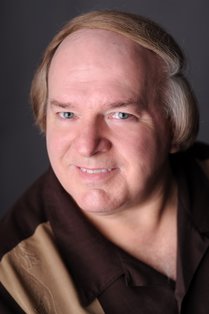 Dixon Hearne is a book reviewer for University Press of Mississippi. His work has been twice nominated for the Pushcart Prize, as well as the PEN/Faulkner and PEN/Hemingway awards. His recent novella From Tickfaw to Shongaloo was awarded second place in the Faulkner Novella Competition. Other work appears in Oxford American, New Orleans Review, Tulane Review, Louisiana Literature, and elsewhere. Visit www.dixonhearne.com Review - Far Beyond the Pale by Daren Dean Fiction Southeast Press, 2015 ISBN: 13: 978-0692347621 378 pages $15.95 (paper) Far Beyond the Pale is first and foremost a coming-of-age story about disaffected 13-year-old Honey Boy Kimbrough, who is forced to grow up too quickly in a dysfunctional home—indeed a dysfunctional world, characterized by broken people, broken spirits, and broken promises. Like Faulkner, Dean cultivates his own “postage stamp of native soil” for the setting (and perhaps substance) in 1970s Missouri, which Honey Boy calls—metaphorically--Misery. The story exudes anger, rage, and retaliation. Honey Boy struggles to bring order to the chaos that engulfs his young life—much of which becomes self-inflicted as he spirals out of control. The son of a seemingly hopeless and unresponsive mother, Lorene, and an abusive father (back in California), he is desperately searching for identity, acceptance, and manhood. Honey Boy’s motivations and actions ultimately spring from a dire quest for his mother’s love and a better life for them both. He is life-weary from years of travel and disruption by his mother’s pursuit of hope and happiness with the wrong men. The need for validation drives Honey Boy into foolish, sometimes dangerous situations, spurred on by local thug Elston Vaughn, who treats him with respect. Under the spell of Vaughn and the influence of other bullies and misfits in his orbit, Honey Boy loses moral direction and clear reasoning. He lunges headlong into self-destruction. The story takes the reader on a spree of petty crimes and mischief—edging characters “beyond the pale.” At some point, Honey Boy becomes aware of a shift from feeling manipulated by outside forces to a state of conscious decision-making—a moral dissonance with which he grapples. He does not know whether a newfound “conscience” is ruled by God or by Satan. Dean creates in Honey Boy the kind of conflict and ambiguity that nag and linger in the reader’s mind—an indelible character worth caring about. The story feels familiar, the characters archetypal, and the conflict real. It is written in raw, sometimes emotionally-charged language reminiscent of Larry Brown and Harry Crews—and accentuated with a pitch-perfect southern dialect. Far Beyond the Pale delivers a moving and skillfully-written work of dark fiction that leads the reader on a circuitous course toward potential dead ends and disappointment. Resolution, however, lies in the capable hands of the author, and Dean does not disappoint.
0 Comments
Leave a Reply. |
ArchivesCategories
All
|
 RSS Feed
RSS Feed